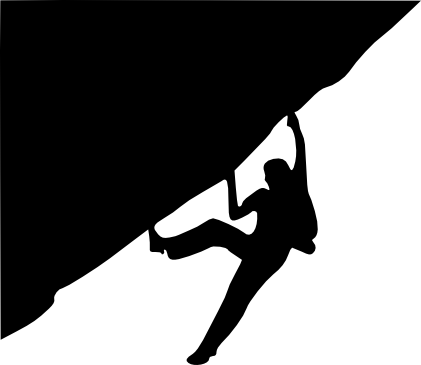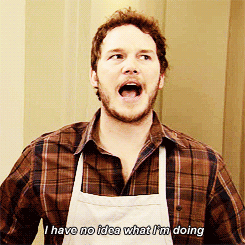Imagine yourself leaning forward in your chair, staring at a blank page. Midnight struck long ago, and you still have no clue what to write about. The caffeinated beverages are neatly piling up on a corner of your desk. It’s as if the emptiness of both the page and your mind are taunting you!
Every writer at some point has struggled with writer’s block. From the most famous writers to the exhausted college student. How does one approach such a universal literary problem?
Often, the key issue of writer’s block is one of inspiration. A writer may have an idea of what the objective for a piece is, but cannot find the path. Like navigating to a vacation destination, a multitude of paths can bring us there. Knowing this, let us consider a variety of options to climb over the block! And check out James N.’s post about writer’s block for more ideas!
1. Sleep on it
Unfortunately for the procrastinator, this option may be impossible; however, our brains formulate solutions to problems better when refreshed from rest. Giving a problem time to brood may provide a solution naturally.
2. Explore the world
Inspiration can come from the places we least expect it to. Taking a walk around your neighborhood, or traveling to a new place could just be the thing one needs. The famed German philosopher Immanuel Kant would take daily walks along the same street in Königsberg as a means to clear his mind. It worked for a metaphysical philosopher, it could work for you!

Immanuel Kant thinking about his next walk.
3. Talk to others
At the UCWbL, tutors utilize this strategy constantly in face-to-face appointments. Receiving a new perspective on a problem can shine light on questions you did not previously consider, or locate a potential path to your objective. Remember that writing is a practice born from our culture and background, thus learning the experiences from people with different background might be the spark you need!
4. Consume media
While one should not plagiarize instead of creating your own work, the creations of others inspire us in ways we could not imagine. For instance, I once found difficulty writing the intro to a poetry analysis; so I decided to watch the comedy classic, “Monty Python and the Holy Grail,” to escape my frustration. One of the scenes in the film correlated to the poem and the analytic argument I wanted to make, so I introduced my paper by relating the scene. Finding connections from other creators to you can be immensely satisfying and helpful.
5. Stop thinking about it!
Just as I stopped thinking about my block by watching a film, you too may need to leave it alone. Building your frustration will not help the situation. If you can, attend to a different paragraph, or something else that you need to accomplish. You cannot force your brain to build the necessary connections all the time.
6. Read writers tackling your prompt
Again, plagiarizing will not bring you success, but writers who have faced a similar topic may give you insight. Researching in libraries or educational databases helps contextualize the conversation you are participating in with your writing. No one writes in a vacuum, unless you are an astronaut writing notes outside the International Space Station. If you are, I am honored that you would take the time to read my post. For the rest of us, it is comforting to know that we can listen in on what others are saying.
7. Break it down
What are the parts that you are missing? What are your specific challenges for this piece of writing? When a writer can identify what is stopping him or her from continuing to write, that can give guidance on how to proceed.
8. Stay positive!
Having a good attitude can make the difference between success and defeat. Telling yourself, “I can’t do this,” will not yield fruitful results. The road towards success can be fraught with confusion and dead ends. Persevere. I know you are able to surmount the block!



One reply on “Surmounting Writer’s Block: A Guide to Inspiration”
Writer’s block is typically detrimental to writers simply because most don’t know how to move past it. I think your post provides several good tips to help writers in the future. Personally, I do something like “Stop Thinking About It!” When I experience writer’s block, I build up a lot of frustration toward not being able to think of something which causes me to not be able to think of something. To remedy this, I go watch some television or talk to friend about something non-related to my work. Ultimately, when I’m not thinking about my writing, an idea will come to me.